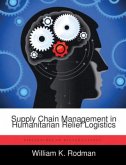USTRANSCOM is currently responsible for the daily shipment of supplies to forward operating bases throughout Afghanistan. Aerial cargo shipments are an important method used to quickly deliver items that are needed immediately. Currently delivery times vary greatly. This variation causes confidence in on-time deliveries to decrease. As a result shipments are demanded early and often, causing bottlenecks in the transportation system and fewer on-time deliveries. This paper analyzes data gathered through the global transportation network to determine shipment characteristics that cause the greatest amount of delivery time variance. A simulation is developed using ARENA that models cargo shipments into aerial ports in Afghanistan. Design experiments and a simulation optimizer, OptQuest, are used to determine most effective methods of reducing delivery time variance at individual aerial ports in Afghanistan as well as the system as a whole. The results indicate that adjustments in port hold times can decrease the overall delivery time variance in the system.
Hinweis: Dieser Artikel kann nur an eine deutsche Lieferadresse ausgeliefert werden.
Hinweis: Dieser Artikel kann nur an eine deutsche Lieferadresse ausgeliefert werden.








